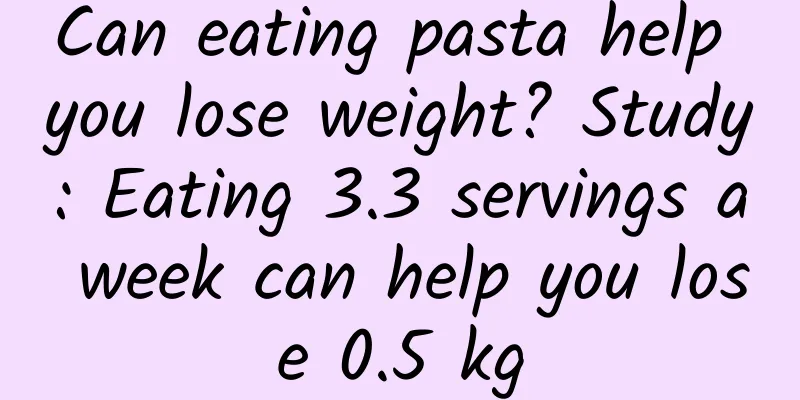Ketogenic diet for weight loss, fat burning... Dr. Weight Loss: 2 hidden "little stones" behind

|
The ketogenic diet seems to be the most popular topic in the past two years. Rumor has it that it can help with weight loss and even treat cancer, which is exciting but also confusing. The ketogenic diet seems to be able to magically lose weight. Does the long-term ketogenic diet have any effect on the human body? An American weight loss doctor said that the ketogenic diet does have a short-term weight loss effect, but the two hidden "small stones" cannot be ignored. What is the Ketogenic Diet? Low in calories, moderate in protein, high in fat, very low in carbohydrates The total calorie intake of a normal person's diet is generally 25 to 30 calories per kilogram per day, and the proportions of the three major nutrients are generally: carbohydrates 55 to 65%, fat 20 to 30%, and protein 10 to 15%, which is often called the "food pyramid." Xiao Danhua, a doctor of nutrition at Columbia University Medical School and a certified weight loss specialist, said in his new book "Get Fat Free and Walk Away" that the ketogenic diet is different. It is a low-calorie (at least 20% lower than normal daily calorie needs), moderate-protein (1g/(kg‧d)), high-fat, and very low-carbohydrate (less than 50g/d) diet with a fat-to-carbohydrate ratio of about 3:1. Extremely low carbohydrates, insufficient total calories, the body is in "ketosis" This dietary structure will induce metabolic changes in the body similar to a state of starvation. Under normal circumstances, carbohydrates in the diet are directly converted into glucose in the body after digestion and absorption, providing "fuel" and energy for the normal functioning of various organs in the body, especially brain cells. When the carbohydrates in the diet are extremely low and the total calories are insufficient, the body mistakenly thinks that we are in a "starvation state", and the liver will mobilize the body's fat and convert it into medium- and long-chain fatty acids and various ketone bodies to provide energy instead of glucose. Blood sugar levels will decrease, while ketone body concentrations in the blood and urine will increase, putting the body in a state of "ketosis", which is where the name "ketogenic diet" comes from. The medical application of the ketogenic diet first began in the 1920s. Scientific research has found that ketone bodies can freely pass through the blood-brain barrier, reduce the irritability of nerve cells, and control the frequency of epileptic seizures. Therefore, in clinical practice, the ketogenic diet is often used as an auxiliary means to treat refractory epilepsy in children. In recent years, some studies have begun to explore the auxiliary role of the ketogenic diet in other neurological diseases and cancer treatment, but it is still in the experimental stage. The ketogenic diet will significantly reduce weight after 3 to 6 months of implementation The role of the ketogenic diet in weight loss has also been confirmed by some studies and human trials. Comparing the high-fat and very low-carbohydrate ketogenic diet with the low-fat and low-calorie diet, the ketogenic diet group lost about 7 kg in weight over a period of 3 to 6 months, which is 2 to 3 times that of the low-fat group; the blood sugar level in the ketogenic diet group also decreased, serum insulin concentration decreased (improved insulin resistance), serum triglycerides decreased, and the concentration of high-density lipoprotein cholesterol increased, indicating that the ketogenic diet has a positive effect on improving diabetes and reducing the risk of cardiovascular disease. [5 major health effects of ketogenic diet]: Why does the ketogenic diet have these health effects? There may be five major mechanisms: ●(1)Strictly limiting carbohydrate intake also limits food choices, which will significantly reduce total calories, which is the key to weight loss. ● (2) Due to insufficient carbohydrates, blood sugar levels drop and the body converts fat and protein into sugar to provide energy, thereby increasing fat consumption and burning. At the same time, this process itself consumes energy, resulting in an increase in the body's total energy consumption, which also helps to reduce weight. ● (3) Energy is provided by burning fat. At the same time, due to insufficient sugar in the body, the conversion of excess sugar into fat is greatly reduced. The overall effect is a decrease in fat storage in the body, which is the so-called "fat loss". ● (4) Studies have found that a ketogenic diet can change the levels of leptin and ghrelin in the body, making it easier for the body to feel full, thereby reducing food intake. ●(5) Improve insulin sensitivity, improve insulin resistance, and affect energy utilization and metabolism in the body. 【Four basic principles for implementing a ketogenic diet】: How to follow the ketogenic diet? Here are the four basic principles: (1) Carbohydrate intake: controlled to less than 50 grams per day. Try to avoid the following foods: rice, pasta, cereal and other grains, beans, various sweets, milk, fruits, and even vegetables with high sugar content (such as potatoes, sweet potatoes, etc.). (2) The staple food is high-fat foods: including meat, fish, eggs, cheese, nuts, cooking oils (such as olive oil, coconut oil), avocados, cream, etc. (3) Supplement with vegetables with low sugar content: such as melons (cucumber, winter melon, pumpkin, bitter melon, comb zucchini), tomatoes, celery, kale, red and white radish, peppers, onions, green onions, ginger, garlic, etc. (4) Supplement vitamins and trace elements: The body's "ketosis state" causes the balance of water and trace elements to change, which can easily lead to trace element deficiency. It is recommended to take multivitamin and trace element (such as magnesium, selenium, etc.) supplements daily. Can the above diet plan be maintained for a lifetime? It may be somewhat difficult. Therefore, the ketogenic diet is suitable for short-term rapid weight loss, but not for long-term sustained weight loss. Studies have found that the weight loss caused by the ketogenic diet is most obvious in the first three months, and the difference between six months and three months is not that big. [Two small stones behind the ketogenic diet]: As for long-term use of the ketogenic diet, be careful of the following effects on the body: (1) Because the body is in a state of "ketosis", be careful of metabolic acidosis, which can lead to electrolyte imbalance, hyponatremia, hypomagnesia, hypoglycemia, hypoproteinemia, hyperuricemia, etc., causing different clinical manifestations such as dizziness, weakness, fatigue, gout, and arrhythmia; and selenium deficiency can cause irreversible cardiomyopathy. This is why it is necessary to supplement trace elements while implementing a ketogenic diet. (2) Due to the severe lack of carbohydrate intake, the body not only breaks down fat but also breaks down muscle to supply energy, which will lead to a decrease in muscle content in the long run. At the same time, since glucose is the direct source of energy for various organs in the body, especially muscles, the ketogenic diet causes insufficient energy supply, physical fatigue, and affects athletic performance. This is especially noticeable for athletes and sports enthusiasts. Excessive obesity requires rapid weight loss, ketogenic diet to assist weight loss surgery In summary, short-term use of the ketogenic diet has certain health effects on the body and can be used when certain physical and medical conditions require rapid weight loss. Dr. Xiao Danhua shared that he once had a patient who needed surgery as soon as possible due to other diseases. However, due to excessive obesity and high surgical risks, the surgeon recommended that he seek help from Xiao Danhua, hoping that the patient could lose 25 kilograms before the surgery. Dr. Xiao Danhua designed a 4-week ketogenic diet for the patient, followed by a two-week pure liquid diet plan before surgery, to help the patient lose weight as quickly as possible in a short period of time. Long-term weight loss after surgery still requires a nutritionally balanced diet with total amount control, high protein and low carbohydrates (not extremely low). |
<<: Get rid of middle-aged obesity! 3 reasons to exercise your lower body after 40
Recommend
What is the cause of menopause?
Physiological menopause is the result of the natu...
What is cervical cyst?
What happens to cervical nabothian cyst? Clinical...
Is cervical hypertrophy harmful to middle-aged women?
If cervical hypertrophy in middle-aged women is n...
What are the causes of cervical erosion and bleeding in women? Cervical erosion and bleeding in women are related to these factors
Cervical erosion can be physiological or physiolo...
Is it really true that being a little bit fat is okay?
The weather has been cold these days, so people e...
What are the main symptoms of cervical hypertrophy?
Cervical hypertrophy is a type of chronic cervici...
How much does it cost to check for vulvar itching?
If female friends are unfortunately attacked by v...
The natural life expectancy of patients with cervical precancer will be reduced
Will the natural life expectancy of patients with...
Don't fall into the misunderstanding of the treatment of vulvar leukoplakia
The treatment of vulvar leukoplakia requires caut...
The most common symptoms of uterine fibroids
Uterine fibroids are a common disease in life. Wh...
What are the symptoms of spontaneous abortion infection?
Symptoms of spontaneous abortion infection includ...
How should female cervicitis be treated? Three common treatments for female cervicitis
After being diagnosed with cervicitis, many women...
Multivitamins add the key good "oil" to protect the health of the whole family!
I’m nutritionist Sun Yuming. I have multiple role...
Experts teach you the secret to changing your body curves in a short time! Stimulating the back has 3 major benefits, making it easy to reduce age without any effort
The secret to changing your body curves in a shor...
What is endometrial tuberculosis?
What is endometrial tuberculosis? Endometrial tub...









